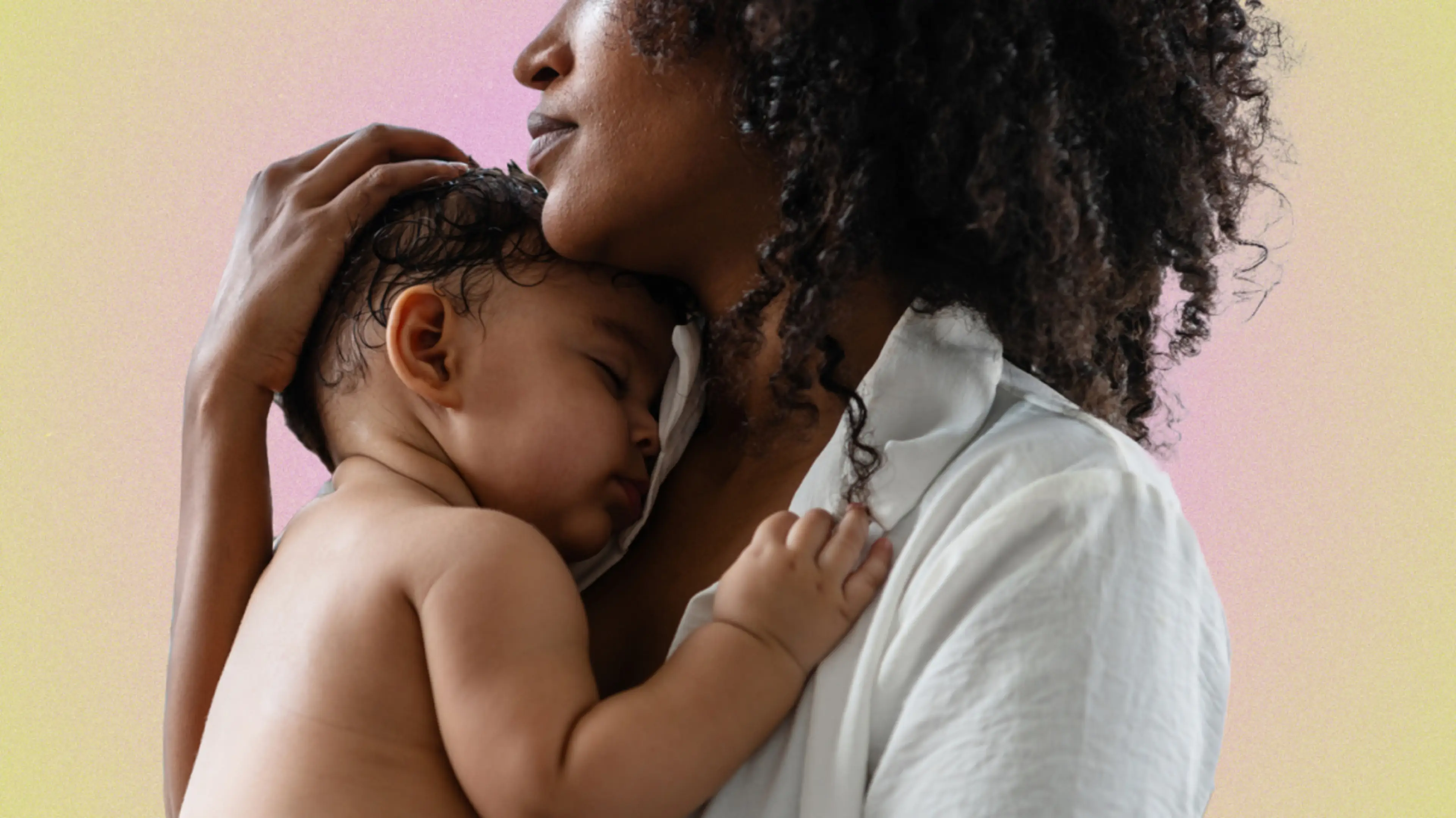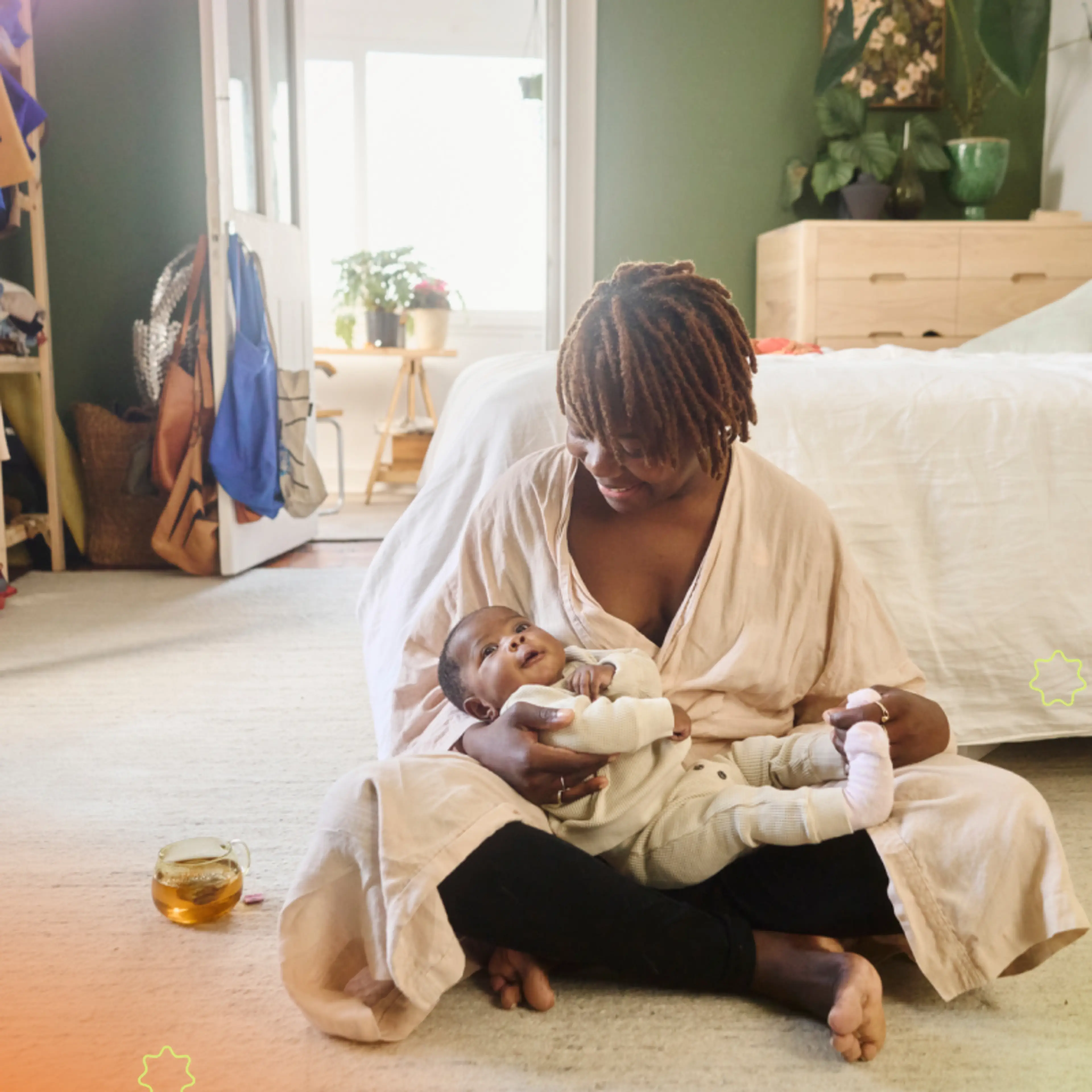As a first-time parent, you're bound to feel some nerves after bringing home your baby. You just stepped into a bewildering role as assistant to a demanding new boss. Tasks include decoding baby grumpiness, opening up a 24-hour milk kitchen, becoming a personal rocking chair, and wiping a teeny tiny butt on demand—all without sleep.
That effort isn’t in vain as it hones your skill as a new mom who is learning your baby’s unique cries and cues. But sometimes, worry can kick into overdrive. In those times, it can be hard to tell if your feelings are coming from a place of mom intuition or anxiety. We talked with experts and a mom who has been there to help parse out the difference between the two, what to do to calm yourself, and when to get some extra support.
What Is Mom Intuition Exactly?
“A mom's intuition is basically a mother's ability to tune into what her baby needs,” says Monique Bellefleur, a perinatal mental health therapist. “Intuition is based on previous experience and knowledge. Even if we might not be consciously processing and putting together information, our brain is automatically drawing from our past experiences, and in this case, specific knowledge of our unique baby, to automatically understand what's going on.”
Bellefleur says her own mom intuition kicked in recently with her baby. Her daughter has eczema, so she’s used to seeing flare-ups of redness on her skin. But one day, it looked like her daughter’s eczema had erupted into a full-body rash. That, coupled with out-of-the-ordinary fussiness set off alarms in Bellefleur’s head that something wasn’t quite right (though her thoughts weren’t spiraling). After a trip to the pediatrician, her intuition was verified—it wasn’t eczema, her daughter actually had a post-viral rash.
When your intuition is at work, you’ll feel calm, reassured, and grounded, says Dr. Lilit Arapeytyran, a perinatal mental health psychologist. “We’re able to pick up on baby’s cues—hunger cues, sleep cues—and we’re more attuned to their behaviors and routines, so we can tend to their needs in a very calm way and make appropriate decisions.”
For Alainna Wurfel, 38, mom to a 3-month-old and 2 year old, mom intuition feels like a friendly nod. It’s exploratory and open-ended rather than fear-based. “It’s more like, you might need to act on something or consider something that feels much more helpful and less fear-inducing,” she says. “It’s more like a prompt to be a better mom or take better care of my baby.”
What Is Postpartum Anxiety?
Anxiety usually feels pretty uncomfortable—your heart is racing, you’re sweating, your mind is spiraling into a million bad places with irrational what-ifs. So, physically it is different with anxiety,” says Ivy Ellis, a perinatal mental health therapist. Basically, anxiety feels bad in your body and mind while intuition does not. “I think the other sign that it’s postpartum anxiety and not intuition is if you’re ruminating, if it’s something that you’re really stuck on and there’s not really any evidence to show that this is possible, then it’s probably anxiety,” she says.
Here’s how postpartum anxiety can look in action. One evening, Bellefleur gave her baby shrimp dumplings for dinner. Earlier that week, she’d done a quick skin test—rubbing a bit of shrimp on her baby’s arm—and she didn’t have a reaction. So when she gave her daughter the dumpling, Bellefleur was pretty sure she wasn’t allergic to the shrimp.
“I put her to bed 30 minutes later, and then I found myself feeling very anxious and uncomfortable physically, my chest felt tight and my heart was racing, and I had a lot of those what-if thoughts like, What if she actually is allergic to shrimp? What if she has an anaphylactic reaction while she’s sleeping? Would I know if she stopped breathing? Would she cry if she’s uncomfortable?”
That led to Bellefleur staring at the baby monitor all night instead of enjoying her downtime. “It wasn’t very rational anxiety because I had no evidence to believe she’d have an allergic reaction,” she says.
How Can You Tell the Difference?
If you’re unsure if what you’re experiencing is bonafide mom intuition or sneaky anxiety, look inward at how you’re feeling. Is your heart racing? Are your thoughts spiraling into the worst case scenario? If so, you’re probably wrestling with a bout of anxiety. But if you’re, say, noticing that your baby seems hungry even though they just ate, and that leads you to top them off with a little extra milk, your mom intuition is likely in control.
The tricky part is that sometimes mom intuition and anxiety collide, says Bellefleur. You might notice something is off with your baby (mom intuition), and then immediately start catastrophizing that something is really wrong (postpartum anxiety). The initial noticing that your baby is acting differently can actually trigger the anxiety. The good news? simply knowing that can help you handle it better.
How to Deal with Postpartum Anxiety
If you’re feeling really worked up, first recognize that you’re experiencing anxiety, and try to ground yourself in reality. “I like to remind myself that when I’m having anxious thoughts that it’s equally true that my baby is probably just fine.”
The other thing you can try is to calm yourself down physically. Tense shoulders? Do a few shoulder rolls, says Bellefleur. Or, take slow, deep breaths to quell rapid breathing. “It lets your body know it’s okay to calm down.”
If you find that anxiety is getting in the way of your daily life, it’s a good idea to call a 24/7 helpline, reach out to a perinatal mental health professional, or just talk to other moms in your life. “It makes you feel like you’re not alone and it’s okay, anxiety is something that happens in motherhood and in postpartum,” says Bellefleur.
There’s also medication available, which Wurfel says she started taking recently. “I was having a hard time with the anxiety, so I was like, maybe if I have something to take the edge off I can trust my intuition a little more.” So far, she says, it’s working.











